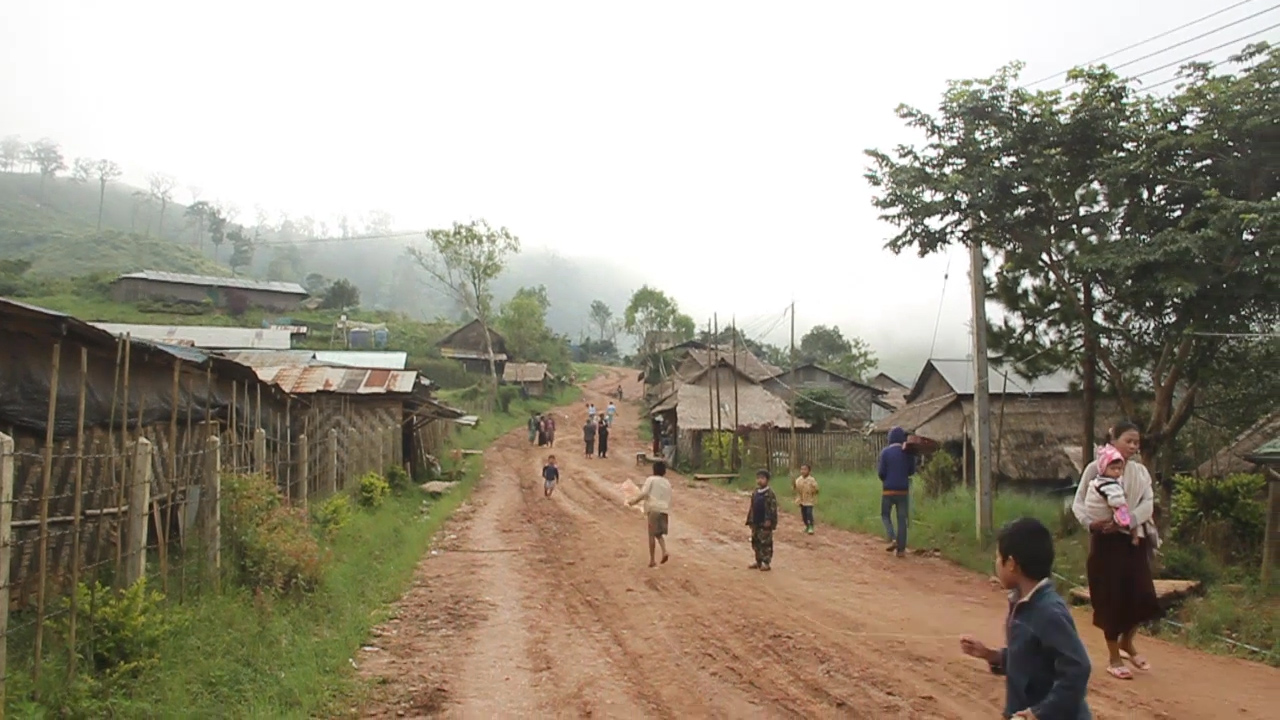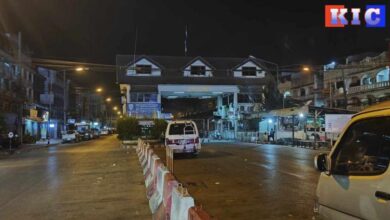Karen Women’s Group Condemns Aid Cuts to Thai-Burma Border Refugees

In an exclusive interview with Karen News, the Secretary of the Karen Women’s Organisation, which represents women refugees, has slammed cuts in aid to refugees, joining a growing host of human rights advocacy groups and community based organisations condemning the funding cuts by international donors.
“Our refugee community feels it is under pressure to return to Burma. If there is not enough food, not enough health services and not enough shelter [then] sensible people will feel the need to move and go to another place where they find these things. That is just common sense,” Naw K’nyaw Paw, Secretary of the KWO, said in an interview with Karen News.
The KWO is a community-based organisation of Karen women working in development and providing relief services in the refugee camps on the Thai border and with internally displaced persons inside Burma, it has a membership of more than 49,000 Karen women.
“As the situation in Burma is not yet ready or safe for refugees to return – we expect to see lots of people trying to find other places to go. That might be within Thailand. This again places us in danger, as we are liable to be arrested and deported.
Naw K’nyaw Paw said refugees are struggling to feed their families on the restricted rations and have little choice but to try to consider their options, despite the limitations.
“Refugees may also decide to try to return to places in Burma that are not yet safe and this puts us in great danger also. We have also heard NGOs and donors talking about a thing they call ‘incentivising return.’ This seems to us to be fancy new jargon for forced repatriation,’” Naw K’nyaw Paw said.
KWO’s concerns come as a growing number of internationally based Burma human rights advocacy organisations condemned the aid cuts to refugees. In a joint statement last week, the European Burma Network, that represents 15 human rights advocacy groups in Europe, including the European Karen Network, Burma Campaign UK and Christian Solidarity Worldwide, said that the cuts endangered the lives of refugees.
“By using cuts in aid to try to force refugees back to Burma, donors such as the European Union are putting refugees at risk of being subject to human rights abuses, landmines, and living in extreme poverty,” the network said.
The Border Consortium (TBC), a coalition of INGO’s that has administered aid to the camps for over two decades, including food rations, has introduced a “staged assistance plan,” classifying refugees according to their level of need from self-reliant, standard, and vulnerable to most vulnerable. Adults considered as part of the standard refugee population have faced the full brunt of the rice ration cut, while self-reliant refugees will no longer receive any ration. According to TBC, the plan will take money away from rice and put it into livelihood programmes geared towards increasing the self-sufficiency of refugees.
Naw K’nyaw Paw stated that the KWO had been overwhelmed with reports of refugees finding it difficult to cope with the ration cuts.
“We have received many reports from many women and men about the problems they are facing because of the cuts in rations and other service. If you cut an adult rice ration from 15 kilos per month to 8 kilos per month, [as] TBC has had to do in December 2013, you would expect to see problems emerging. The rations in the past were enough to keep people alive. Now they are not – assistance for bamboo and wood for our houses has also been drastically cut. As have support for health and education services. All of this throws a bigger burden onto families to provide for themselves.”
The KWO report that the funding cuts had put pressure on refugees to find work outside the camps in order to survive, meaning that children and young people were being left in houses in the camps without proper parental supervision. Naw K’nyaw Paw expressed concern that refugees seeking work outside the camp were vulnerable to economic exploitation and abuse and cites the recent murder of two refugees.
“Those who leave [the camps] to work are open to abuse by employers. They are not protected by Thai law so can be easily exploited. In a recent case, certainly an extreme case, a refugee couple from Mae La camp worked for three months for a corn farmer not far from Mae La camp. When they asked to be paid he killed them both with an axe in front of their two children. He [the employer] fled the scene and has not been found.”
Naw K’nyaw Paw listed the major problems confronting people thinking about returning to areas in Karen State.
“Landmines, a much increased Burma Army presence near Karen villages, not enough food and services for the locals (let alone many new refugees), lack of livelihood opportunities, not full and proper ceasefire agreements. Many new big economic development projects swarming into Karen state [and] with no proper regulations to control what they do and how they do it, we see this as another form of abuse of our people and of our land.”
Refugees have experienced a series of cuts to their rations and services in the camps over the last two years. The latest funding cut, implemented in December 2013, saw rice rations to refugees classed as part of the ‘standard’ camp population reduced from 12kg per month to 8kg in two of the largest camps – Umphiem and Mae La, together are home to around 56,000 refugees – and 10kg in the other camps with the exception of Ban Don Yang which would remain at 2013 levels.
TBC’s latest figures from March this year noted that 119,000 refugees were currently living in the nine refugee camps on the Thai-Burma border, 10,000 less than in March 2013.




